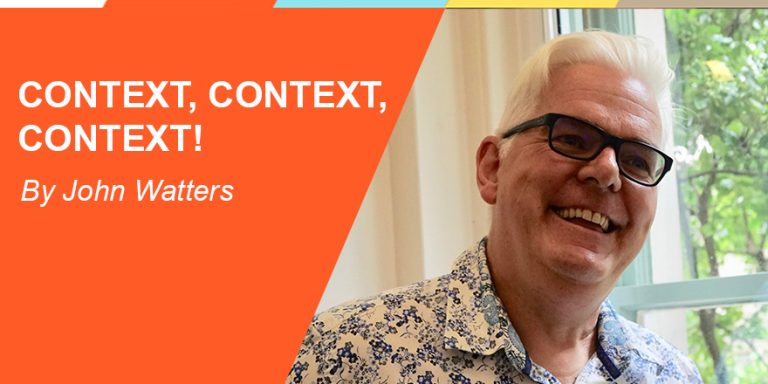Is Barry Oshry’s Systems Thinking Still Relevant at the Teal level?
A significant number of leaders we meet are interested in a new way of organising: one that is centred on a larger and more compelling sense of purpose than just meeting the numbers, which liberates human potential and treats people as whole human beings not just human resources.
We partner with these leaders to steward responsibly and practically this transition in their own organisation and our work spans a number of areas including Barry Oshry’s Systemic Frameworks and applying the insights from the work of Frederic Laloux and his best-selling management book “Reinventing Organizations”.
If you’re new to Barry Oshry’s work then watch this 30 minute video of Barry speaking this year in London; the video gives you a good introduction to his work. To familiarise yourself with Frederic Laloux’s work, I encourage you to read my colleague George Por’s blog post.
A number of people have argued that with the advent of Teal (the new organizational paradigm described in Laloux’s book) that Oshry’s systemic framework has become defunct. Laloux spoke at the Global Gathering of Oshry Workshop practitioners in London in June 2015. This question and others were put to Frederic – what follows is an excerpt of the session.
Q: A number of people have argued that with the advent of Teal Organisations that Oshry’s framework has become defunct?
Frederic: “If we define Tops, Middle, Bottoms, and Customers, not as static boxes on an org chart, but as relational spaces or contexts, then they are still very much present. People just flow and navigate between these different spaces, including within the same day. So, on one initiative I am leading it, and I am in a Top space. Another time, somebody else is leading and I am just following; I am the Bottom. And in another situation, I might be sort of the Middle, somebody else is really leading the big picture of it, but I am designing some elements; I am coordinating some stuff.
“And what this brings I think, is an enormous relief for the Bottoms and the Middles, and also for the Tops! We tend to think that being Top is so great. We often underestimate the weight of the poor people at the Top of the organizations who constantly have to be Top, and can never relax into Bottom, where I can just follow. I will do my share, but I don’t need to be in a leadership position”.
Frederic went on to remind us that Teal thinking works with natural (not fixed) hierarchies: where those with passion, energy, and skills step into the Top space and lead, creating a much more fluid and agile organisation. “Hierarchy isn’t abandoned at Teal; what is dismantled is the static form of hierarchy that is in the buttress of the org chart. The goal of self-management is not to make everyone equal, to have everyone having the same say on all the questions. It is really the opposite. It’s to have natural hierarchies, and to have lots of natural hierarchies.
“I notice that there is this common misunderstanding that self-managing organization means no hierarchy, means everyone is equal. If that is your perspective, then you would say, ‘Hey! There is no longer any Top, Middle, and Bottom’. But in reality, that is not the case.
“Some roles will probably spend much more time in Top, and others will spend much more time proportionally in the Bottom. So, if you think of a factory such as Favi in the north of France, the automotive suppliers that are very good in their mechanisms to be self-managing: a machine operator might spend most of the day in the Bottom space, but then spend just 10 minutes or an hour leading something. But he then suddenly decides, ‘Hey, I am going to investigate the purchase of a new machine,’ or simply, ‘I will lead a continuous improvement initiative.’ And in that moment, he really is in a Top space. I say he because he is mostly man. He really is in a Top space. He does not need to get approval from the Middle manager or Senior manager. He uses the advice approach structure to make that happen. He really is in a Top space. And on the other hand, there might be people who spend a much greater proportion of their time in the Top space. An engineer who is designing a new factory might be spending a lot of time in top space and much less time in Bottom space.
“That is okay because nothing in these organizations which prevents people from spending a percentage of time they want in different spaces. Nothing is basically forcing your butts into one of these spaces. So in my sense, the context of Top, Middle, and Bottom (and Customer) very much exist as a relational space, but not as a label. I think that is really the big attraction of Teal.”
Frederic went on to describe how culture and work practices combine in Teal Organisations to interrupt the pattern of complaining or BMW behaviour (blaming, moaning, whining) which we regularly fall into when we are in the Bottom space in traditional organisations. “If you complain, then people will hold up a mirror and will force you to move into a Top space. They will say, ‘Hey, you complain well. What are you going to do about it?’ Everyone is expected to raise and resolve the tensions they encounter: the gap between what is currently and what could be”.
Q: Barry Oshry’s work implies a shift of wholeness: the shift in leadership from the reflexive, habitual (Door A) responses to more intentional (Door B) behaviors and responses. This requires a self and system awareness. Could you expound on what wholeness means and the shift in practice and culture to bring it about?
Frederic: “I have come to see things in the following way: In our unhealthy pyramidal structures, if we want this to function in somewhat healthy ways, we really need heroes. We need people who indeed have a high self and system awareness to deal with the forces that push you towards often unhealthy behavior. And when you have healthier structures, like self-managing structures, there is a whole learning curve to play the game in new ways because we have not learned this in school.
“But actually, this sort of self-awareness and system awareness that you need is actually pretty low because you don’t need to gain a really complex system awareness to deal with an unhealthy system. Brian Robertson from Holacracy speaks about this in very powerful way. He said, ‘Leadership trainings and consciousness trainings in self-managing organizations become less necessary and more powerful.’
“And that just makes a lot of sense to me. They become less necessary because you don’t need all these great leadership skills to overcome unhealthy structures and they become more powerful because whatever these people learn, they can apply in the healthy system rather than spending a lot of time, a lot of energy just simply patching up something unhealthy.
“In terms of wholeness, all wisdom traditions really speak about life as a journey to wholeness. Life as a journey to reclaim all of our parts: integrate ego and spirit; integrate masculine and feminine; integrate the rational and emotional and the spiritual, etc. And a big precondition, I think, for any of us to dare go into more wholeness is for an absence of fear or judgment to be there. It is for us to feel safe enough to actually reclaim some of those parts, especially to reclaim them in a community of peers. So, I fully agree with Barry’s work and the destructive consequences of dominance and other (dynamics), one-up/one-down (power) cultures.
“I guess self-management really helps get rid of a lot of that. But it does not get rid of all of it! Self-management gets rid of a lot of the poison in the system, a lot of the fears of hierarchy. All the fears of bosses at the top, of keeping people in line … But many companies find out, in itself, that this is not enough.
Being in presence of peers, even self-managing organizations, there is just so many things that can trigger our egos that can make us become fearful that it makes a lot of sense to actually purposefully create a safe space that allows us to explore our inner wholeness and our common wholeness to join together in work as whole human beings”.
Q: Is it possible for Middles and Bottoms to basically create a movement to Teal if the Tops in a hierarchy, in a pyramid, don’t see it that way?
Frederic: “Unfortunately, I haven’t seen any really successful example of that. What I have seen is people doing sometimes really pretty wonderful things at their own level below them. Somebody came up with this great expression that I love the way they said, they basically ‘raise the shit umbrella.’
Basically, they catch a lot of shit but don’t transmit it downwards. And there is quite a lot of things that you can do in this way, so let’s say that the organization operates with some of the cascaded budgets and targets. The leader here, she would play by that rule and sign for some targets, but those are not actually cascaded down in the same way. And in many cases, people at the Top accept that.
“There are many things that you can do. For instance, one practice that proves time and again to be very powerful is imagine you are the head of a business unit. If you had a direct report that needs to be nominated, instead of you nominating your direct report, let the team 1 level below do that, so 2 levels below you write the job description and interview the boss, the future boss, and decide on it.
“Time and again, you notice that when people do that, they write very tough job descriptions and they choose very carefully who their next boss is, and that new boss starts with enormous goodwill from his people or her people. So, that is a practice that most of the time HR does not even need to know about.
“So, there are actually quite a lot of things that you can do under the shit umbrella. The trouble is that if you leave because for whatever reason you get promoted or if a more traditional manager comes in, not much of that will probably remain, and it is unlikely that… your example, however successful and spectacular it might be, will in itself get leaders to see the world from a Teal rather than a Green or and Orange perspective.
“From everything we know, the process by which we grow into more complex perspectives is a complex spiritual thing that cannot be forced and is certainly not forced by simply the power of one example. So, you can take Orange leaders and bring them to see Buurtzorg, or Favi, or Morning Star, whatever, and they will not automatically ‘get it’ and do it the next day. So unfortunately, I don’t see many examples of this happening”.
Frederic went on to share a story of one possible exception which he knew about which is still unfolding “but otherwise, I am not very hopeful that a local experiment carries on for the whole organization. I would love to think differently, but I am not very hopeful”.
Q: Which way is the system likely to go? Meg Wheatley’s writing in her book, Brave New World, says that things aren’t going to get better any time soon, in fact they are likely to get worse.
Frederic: “I live in this totally hopeful bubble now and within it I can think that the whole world is going Teal. And of course, that is not true, and which way it is going to go … who knows? Very clearly, I think the pain in the system is increasing, and it leads people in different directions. One of my favorite writers, Parker Palmer, talks about it. Our heart can be broken in two ways. It can shatter into a thousand pieces that hurts everyone around us, or it can break open to take in more love, more reality, and more of the world. And I think that is what we are seeing, these two forces happening. And which direction is it going? Which will prevail? Probably both for quite a while.
“And let us just hope that it goes in the right direction, and let us each, at our own scale do what we feel called to do. I think that the power of example is a big one. If I just look at Buurtzorg in the Netherlands, just maybe to promote a prominent example of an organization that has really changed the way the industry talks about it.
“It is almost impossible in the Netherlands to talk about health care without talking about self-management. And so, many Orange leaders don’t get it, and just pay lip service and say they do self-management even though they really don’t. But they almost feel like they have to do it. It has become part of the discourse. Just like an African dictator who says that he is doing democracy even though he is not. But you know, it is just impossible not to say that you are doing it. I am really curious where this whole thing is going to go.
“I seriously believe that we face the risk of mass extinction, including the human species, and so let us hope that those whose hearts crack open outnumber those whose hearts splinter into a thousand pieces”.
John Watters introduced Barry Oshry’s work into Europe over 15 years ago and runs accreditations in all of Oshry’s programmes worldwide on behalf of Power+Systems. John specialises in consulting on stuck or complex situations where a breakthrough in mindsets, ways of working, and performance is desired. To find out more about how Future Considerations can help steward new ways of organising in your Organisation, please get in touch.
This article was first published in Enlivening Edge – News from Next-stage organizations.





Leave a Reply